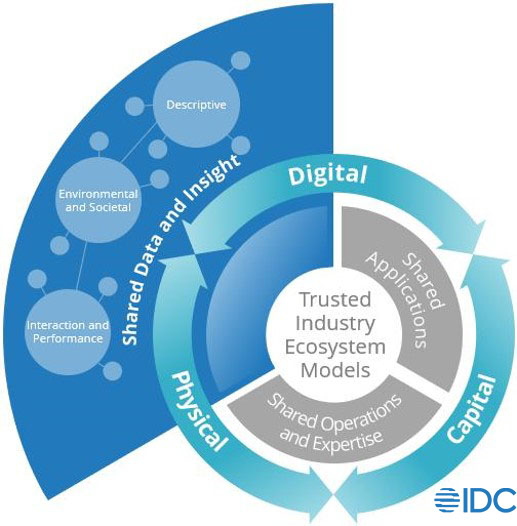News about data breaches – when enterprises ‘share’ their data without consent – make headlines and strike fear into executives’ hearts, send IT departments into overdrive and shake customer and employee confidence. However, little is said about when enterprises share data purposefully. There is a strong case to be made about how sharing data can make you and your ecosystem partners stronger, more resilient to volatility and uncertainty, and better able to serve your customers.
Did you know that 50% of US and Canadian of enterprises are already sourcing data from their partners (suppliers, distributors, retailers, etc.) and an additional 19% say that they are likely to begin doing so in the near future? (See material from IDC’s March 2022 Data Buyers Study) This means that it is highly likely that your competition is doing this. It is not just that so many others are doing this, it is that there can be a lot of benefit to sharing with trusted partners.

Shared data and insight is one of the foundations of successful industry ecosystems. IDC’s most recent global research finds that more than 1/3 of enterprises find that shared data positively impacts KPIs for innovation rates, business agility, and transforming their individual enterprise to more digital operation (IDC’s Future of Industry Ecosystem Survey, June 2022). This type of sharing is widespread and can take many forms. There are obvious opportunities for suppliers to share data with the companies that make finished goods, for example. When the finished goods company has accurate information about supplies and transit times for inputs to their products, they can foresee potential out of stock situations. This can allow them to qualify additional suppliers and/or inform their customers of potential bottlenecks. Sourcing and sharing data outside the individual enterprise helps provide insight that one entity cannot effectively collect and analyze on its own.
Of course, after you answer, ‘Why share data and insight?’ you have to figure out, ‘How?’ IDC has been looking at this through a series of research, starting with The Why and the How of Shared Data in Industry Ecosystems where we describe ways to create value from data and insights through fit-for-purpose solutions such as data marketplaces. Next, we followed that up with case studies of how groups have made this work in a presentation on Shared Industry Ecosystem Data: How Ecosystems Made It Work with Data Sharing and Marketplace Technology. In this research, you can learn the types of technologies that others have used to make data and insight sharing more available. These tools also assist with curation, governance and entitlement – which are key to any shared data situation.
Many enterprises still struggle with the ability to share data and insight across divisions and geographies. However, you don’t have to wait until you get all of your internal information sharing perfect before you look to how outside collaboration might provide advantages. Wins with external stakeholders could pave the way for more effective collaboration internally!
Data sharing has existed since before there were technologies in place. Vendors and customers have often had dialog where they shared information, whether these arrangements were formal or informal. Most often, solving the technical side of data sharing meets with less skepticism than the governance, change management and pure inertia issues. The gap has been less that potential ecosystem participants are unable to share and more that they have been unwilling for one reason or another. IDC receives a lot of inquiries about topics such as:
- What if there’s no industry ecosystem for me?
- How do I know what to share?
- How am I going to share this?
- Do I have to share everything?
- How do I get others to share with me?
- Should I charge for access to my data?
- Can we make money doing this?
Your enterprise is not alone in wanting to learn more but being cautious about the potential exposure of shared data and insights. And, even though a few ecosystems have been able to create an outside revenue stream for these outputs, it should not be a primary consideration when potential partners come together.
Reach out and let’s talk about how to make shared data and insight in industry ecosystems work for you! There a quite a few examples we can point to, across industries and across the globe. You can learn from other ecosystems and how they’ve used technology, process and teams to derive mutual benefit.
Next on our research agenda, we are crafting a TechBrief on Data Clean Rooms – a way to share data while preserving privacy and competitive information, while benefiting the two or more parties who are looking to tackle common challenges ranging from fighting fraud to improving supply chain issues to helping to gain more insight about customers and potential customers. This is a way to be building your own ecosystem and gaining valuable insight while keeping the legal and security teams satisfied with the level of care you put in place.
We will continue to write about the topic of shared data & insights within our Future of Industry Ecosystems practice as well as our Data as a Service practice.




